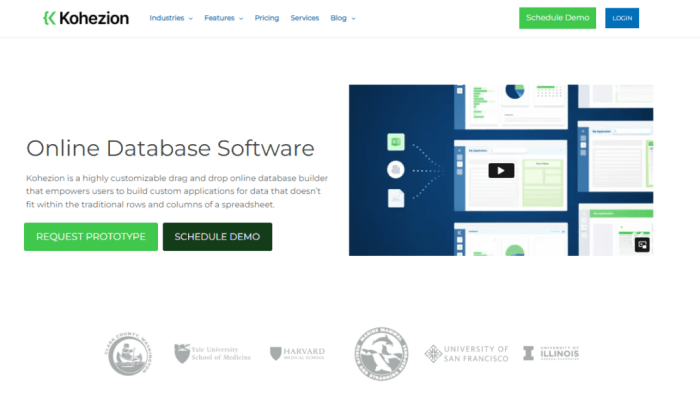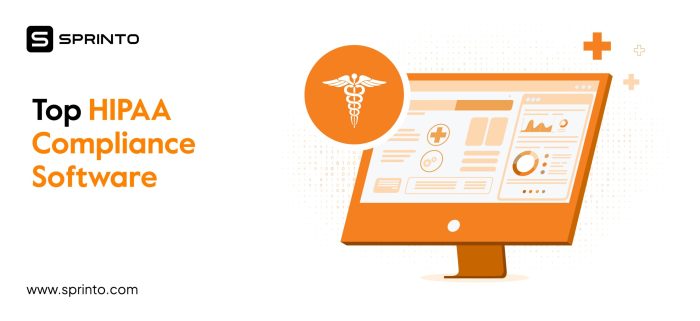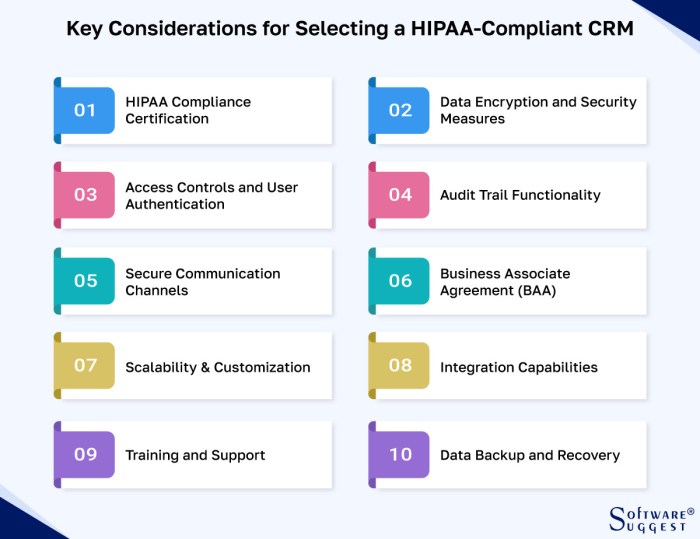Crm software hipaa compliant – The healthcare industry operates under strict regulations, particularly concerning patient data privacy. The Health Insurance Portability and Accountability Act of 1996 (HIPAA) mandates stringent security measures to protect Protected Health Information (PHI). Choosing the right Customer Relationship Management (CRM) software is crucial for healthcare providers, and ensuring HIPAA compliance is paramount. This comprehensive guide will delve into the essential aspects of HIPAA compliant CRM software, helping you navigate the complexities and select a solution that safeguards patient data while optimizing your operations.
Understanding HIPAA Compliance and its Implications for CRM
HIPAA compliance isn’t just a checkbox; it’s a holistic approach to data security. It dictates how healthcare providers must collect, store, use, and transmit PHI. This includes a wide range of information, from medical records and diagnoses to billing details and insurance information. A non-compliant CRM system can lead to severe penalties, including hefty fines, legal action, and reputational damage.
Therefore, selecting a HIPAA compliant CRM is not merely advisable—it’s a legal necessity.
Key HIPAA Requirements for CRM Software:
- Data Encryption: All PHI stored and transmitted must be encrypted both at rest and in transit. This prevents unauthorized access even if a breach occurs.
- Access Control: Strict access controls must be implemented to limit access to PHI based on roles and responsibilities. Only authorized personnel should have access to specific patient data.
- Audit Trails: The system should maintain detailed audit trails, recording all activities related to PHI access, modification, and deletion. This provides accountability and facilitates investigations.
- Data Backup and Disaster Recovery: Robust backup and disaster recovery plans are crucial to ensure data availability and prevent data loss in case of system failures or emergencies.
- Business Associate Agreements (BAAs): Healthcare providers must ensure that their CRM vendors have signed BAAs, legally binding contracts outlining their responsibilities for protecting PHI.
- Employee Training: Employees who access and handle PHI through the CRM system must receive adequate training on HIPAA compliance regulations and best practices.
- Security Risk Assessment: Regular security risk assessments are necessary to identify and mitigate potential vulnerabilities in the system and processes.
Choosing a HIPAA Compliant CRM: Key Considerations
Selecting the right HIPAA compliant CRM involves careful evaluation of several factors. It’s not just about finding software that claims compliance; you need to verify its adherence to the regulations.
Essential Features to Look For:
- Built-in Security Features: The CRM should offer robust security features like encryption, access controls, and audit trails as standard functionalities, not add-ons.
- Compliance Certifications: Look for vendors with certifications such as SOC 2 Type II, ISO 27001, or HITRUST CSF. These certifications demonstrate a commitment to security and compliance.
- BAA Availability: Ensure the vendor readily provides a BAA and is willing to work with you to address any specific compliance requirements.
- Data Location: Understand where your data will be stored. Consider data sovereignty and compliance regulations in your region.
- Scalability and Flexibility: Choose a CRM that can adapt to your growing needs and integrate with other healthcare systems.
- User-Friendliness: The system should be intuitive and easy to use for your staff, minimizing the learning curve and maximizing efficiency.
- Customer Support: Reliable and responsive customer support is essential for addressing any technical issues or compliance-related queries.
Top Features of HIPAA Compliant CRM Software
Beyond the basic compliance requirements, several features enhance the functionality and value of a HIPAA compliant CRM for healthcare providers.
Advanced Features Enhancing Efficiency and Compliance:, Crm software hipaa compliant
- Patient Portal Integration: Allowing patients secure access to their information enhances transparency and patient engagement.
- Appointment Scheduling: Streamlining appointment scheduling improves efficiency and reduces administrative overhead.
- Automated Reminders and Notifications: Reducing missed appointments and improving patient adherence to treatment plans.
- Reporting and Analytics: Providing valuable insights into patient interactions and operational efficiency.
- Integration with EHR/EMR Systems: Seamlessly integrating with existing Electronic Health Record/Electronic Medical Record systems for comprehensive data management.
- Workflow Automation: Automating repetitive tasks to free up staff time for patient care.
Frequently Asked Questions (FAQ)
- Q: What are the penalties for HIPAA violations?
A: Penalties can range from a few thousand dollars to millions, depending on the severity and nature of the violation. This can also include legal action and reputational damage. - Q: How can I verify a CRM vendor’s HIPAA compliance?
A: Request copies of their security policies, BAAs, and compliance certifications. Ask about their security protocols and data encryption methods. Conduct thorough due diligence. - Q: Is cloud-based CRM software HIPAA compliant?
A: Yes, cloud-based CRM software can be HIPAA compliant, provided it meets all the necessary security and privacy requirements. However, careful vendor selection is critical. - Q: What is a Business Associate Agreement (BAA)?
A: A BAA is a contract between a healthcare provider and a business associate (like a CRM vendor) that Artikels the responsibilities for protecting PHI. - Q: How often should I conduct security risk assessments?
A: Regular risk assessments are recommended, ideally at least annually, or more frequently if significant changes occur in the system or environment.
Resources
- U.S. Department of Health & Human Services (HHS) HIPAA Website
- National Institute of Standards and Technology (NIST)
- HITRUST Alliance
Conclusion
Choosing a HIPAA compliant CRM is a critical decision for any healthcare organization. By carefully considering the factors discussed in this guide, you can select a solution that effectively manages patient data while ensuring compliance with HIPAA regulations. Remember, protecting patient information is not just a legal obligation; it’s a fundamental ethical responsibility.
Call to Action: Crm Software Hipaa Compliant
Ready to find the perfect HIPAA compliant CRM for your healthcare practice? Contact us today for a free consultation and let us help you navigate the complexities of HIPAA compliance and choose the right solution for your needs.

Source: kohezion.com
FAQ Corner
What specific features should I look for in a HIPAA-compliant CRM?
Essential features include robust encryption, granular access controls (role-based permissions), audit trails, business associate agreements (BAAs), and data breach notification protocols.
How often should I audit my CRM system for HIPAA compliance?

Source: sprinto.com
Regular audits, at least annually, are recommended. Frequency may increase based on changes in the system, regulations, or internal policies.
What happens if my HIPAA-compliant CRM experiences a data breach?
Immediate notification to affected individuals and the Department of Health and Human Services (HHS) is required, along with a detailed investigation and remediation plan.

Source: softwaresuggest.com
Can I use a standard CRM and make it HIPAA compliant through add-ons or configurations?
While some add-ons may enhance security, it’s generally safer and more reliable to choose a CRM specifically designed and certified as HIPAA compliant from the outset.
